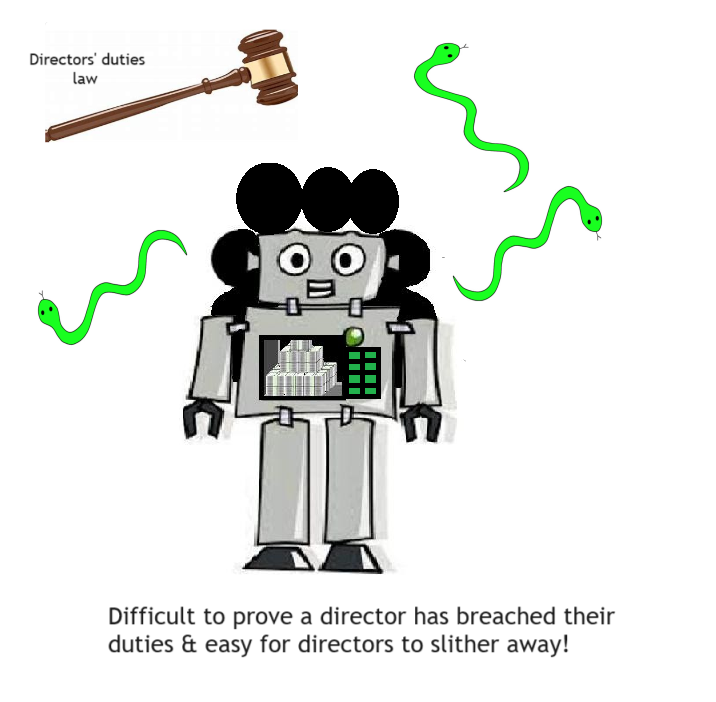Howard Smith Ltd v Ampol Petroleum Ltd [1974] UKPC 3
Citation: Howard Smith Ltd v Ampol Petroleum Ltd [1974] UKPC 3
Rule of thumb: How can a director defend a claim for a breach of director’s duties by shareholders or other directors who succeed them? If the director can prove (a) they had no conflict of interest, and (b) there was some sort of viable rationale underpinning the decision, with it not being completely illogical, then they will not have breached their duties.
Judgment:
here the legality of any decision by a director is being challenged in Court, and the director can establish that they had no self-interest or conflict of interest in making, and they did genuinely believe the decision was taken for the best interests of the company, the Court will unlikely to declare the director decision to have been a breach of director’s duties. This does not mean that it will not be declared to be a breach of duty but it puts a strong presumption in the director’s favour as emphasises that it is not questioning the commercial merits of director decision making, ‘The extreme argument on one side is that, for validity, what is required is bona fide exercise of the power in the interests of the company: that once it is found that the directors were not motivated by self-interest—i.e. by a desire to retain their control of the company or their positions on the board—the matter is concluded in their favour and that the court will not inquire into the validity of their reasons for making the issue... It can be accepted, as one would only expect, that the majority of cases in which issues of shares are challenged in the courts are cases in which the vitiating element is the self-interest of the directors, or at least the purpose of the directors to preserve their own control of the management. Further it is correct to say that where the self-interest of the directors is involved, they will not be permitted to assert that their action was bona fide thought to be, or was, in the interest of the company; pleas to this effect have invariably been rejected... just as trustees who buy trust property are not permitted to assert that they paid a good price. But it does not follow from this, as the appellants assert, that the absence of any element of self-interest is enough to make an issue valid. Self-interest is only one, though no doubt the commonest, instance of improper motive: and, before one can say that a fiduciary power has been exercised for the purpose for which it was conferred, a wider investigation may have to be made... It would be wrong for the court to substitute its opinion for that of the management, or indeed to question the correctness of the management’s decision, on such a question, if bona fide arrived at. There is no appeal on merits from management decisions to courts of law: nor will courts of law assume to act as a kind of supervisory board over decisions within the powers of the management honestly reached... define in advance [what that means is] impossible... (and It must be adjudged) in the light of modern conditions’, Lord Wilberforce

Warning: This is not professional legal advice. This is not professional legal education advice. Please obtain professional guidance before embarking on any legal course of action. This is just an interpretation of a Judgment by persons of legal insight & varying levels of legal specialism, experience & expertise. Please read the Judgment yourself and form your own interpretation of it with professional assistance.

